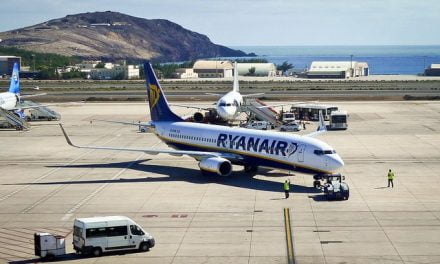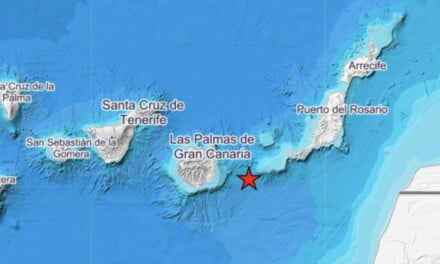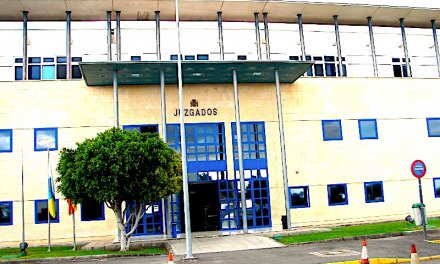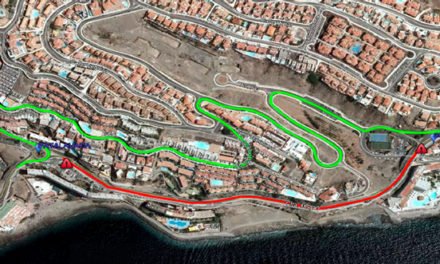Mogán town hall has once again chosen to remain silent this Friday in regard to the closure of Playa de Mogán due to suspected sewage having been detected in the waters of one of the islands favourite tourist-cum-fishing towns, choosing instead to talk about how much money they have spent on sports projects. This is already the 5th time in 4 months, reports news portal El Digital Sur Gran Canaria, that Playa de Mogán beach, one of the most important on Gran Canaria, in the Municipality of Mogán, has been closed to bathers.
 Policia local in the municipality of Mogán, whose economy is primarily tourism based, today closed the beach, prohibiting access to the bay as yet more biological contamination was apparently detected.
Policia local in the municipality of Mogán, whose economy is primarily tourism based, today closed the beach, prohibiting access to the bay as yet more biological contamination was apparently detected.
The local administration has, it seems, still not found what the real problem might be, causing the smelly issues in the waters of Mogán, as no specific leaks have been reported from the neighbourhood’s sewage system, but nevertheless it is clear that something is happening. And it is clear that the Town Hall, still headed by Onalia Bueno’s administration, are not only failing to keep our beaches clean and safe, but also have failed to fulfil their duties, under Spanish and European law, to ensure that the public is being made properly aware of any potential risk to health.
It’s simply not on. It’s no good for Mogán, and no good for the island.
A enclave such as this cannot continue to maintain any hope of a successful tourism image, if they cannot even guarantee that the water is clean, let alone keep the beaches open. Businesses from all over the area are seeing the impact on their daily trade. Who is safeguarding their interests now?
Some residents have tried to argue that the previous closures have been false alarms, and that there has been no contamination due to “fecal contamination indicators”, but this is simply not true. This same problem has occurred for the 5th time, and each time they have had to close the beach to bathers, in addition, the indicators are, according to sources, apparently greater each time, this is no longer any sort of coincidence. It is something that has occurred on several occasions, and seems to be getting worse, as well as more frequent.
 The Ministry of Health and Consumption, through its online platform Náyade, a Spanish governmental health information system that collects data on the quality of bathing water, makes very clear and how many times it has happened. On this occasion, the sample collected by the authorised health technicians is dated August 10, Wednesday, which indicates “possible microbiological contamination of the water, indicators of fecal contamination detected.”
The Ministry of Health and Consumption, through its online platform Náyade, a Spanish governmental health information system that collects data on the quality of bathing water, makes very clear and how many times it has happened. On this occasion, the sample collected by the authorised health technicians is dated August 10, Wednesday, which indicates “possible microbiological contamination of the water, indicators of fecal contamination detected.”
Specifically, the indices found are Escherichia coli – 460 CFU/100 mL and Enterococcus – 550 CFU/100 mL. Note that in the Enterococcus indices, the data collected is more than double that obtained on the last occasion of the closure of the beach, collected on August 1st, which was 260 CFU/100mL.
This particular beach in the municipality of Mogán is experiencing a record breaking summer, on May 25, June 30 and August 3, access to bathers was also restricted for the same reason. On April 8, bathing from Taurito beach, located next to it, also had to be sealed and prohibited, because the samples taken periodically to control the health of the waters gave indicators of “fecal contamination”, that is 5 times in 4 months that these polluting and unhealthy discharges have been detected.
The still mayoress, La Alcaldesa Onalia Bueno, ruler of the southern municipality of Mogán, vice president of the Association of Tourist Municipalities of the Canary Islands (AMTC), and one of the first to demand that the autonomous government delay the implementation of the Beach Safety Law, does not appear to setting an example for managing a service that is the first and most important for foreign tourists who visit us.
What is it they are doing, if not keeping our beaches open, and our visitors safe?












